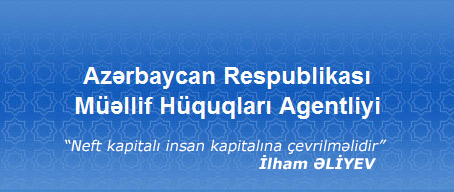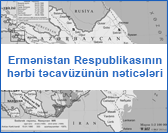Copyright law in Azerbaijan
Copyright law in Azerbaijan
Azerbaijan’s Copyright and Related Rights Act – the first such law in its history - came into force on 8 October 1996. It satisfies the requirements of civilized societies and reflects the rule-of-law principles proclaimed by the founders of the new republic. It totally rejects the Soviet approach to copyright, which assumed an unequal relationship between authors and users – was, indeed, more concerned with “right of use”.
As Friedrich von Hayek has noted: “The purpose of a right is to curb injustice and misconduct”. The new copyright law discarded the old formula, “an author is the author, not the owner, of his works”, which was based on “non-transferable property copyright” and “free use of published works with or without payment of royalties”. This approach effectively deprived authors of their property rights, and eroded even their residual rights – the result being severe restriction of their interests.
It also turned its back on the second principle behind the old system, “the wishes of the parties (authors, users) are not autonomous, but limited”. In practice, this meant that authors’ contracts were strictly regulated by the state, which also fixed their royalties – a further intrusion on their copyright.
Clearly, in these circumstances, the intellectual property market was a state monopoly, the only “users” were state structures, and both “competition” and “piracy“ were absent.
National independence and the social and economic changes of the last few years have radically changed this situation.
Copyright in Azerbaijan today is comprehensive, effective and territorial, and freedom of creative endeavour is its guiding principle. It also tries to strike a balance between the interests of authors and the public. This, indeed, is its strength. As the sage Kabousname once put it: “Do not look for justice in others – be just yourself”. Since it has been in force, the new copyright law has shown how true this is.
The main principles of the Act are those current in European countries.
First of all, it follows the “continental” conception of copyright as a personal right, preferring this to the Anglo-Saxon vision, which stresses the commercial side of copyright. This is important, and reflects Azerbaijan’s acceptance of the unified European approach, shortly after joining the Council of Europe. It is also important that Azerbaijan protects the moral rights of authors, which is the cornerstone of the continental position.
Secondly, the term “author” is interpreted broadly, as it is in other countries with high standards of copyright protection.
Translations, anthologies and collective works are all protected, as are computer programmers and data-bases. In the audiovisual field, it should be noted that authorship is not restricted to directors, scriptwriters and composers, but extends to cameramen and set-designers too. The Act also recognizes related rights, performers’ rights, and the rights of phonogram producers and broadcasting bodies (TV and radio). This is a highly positive development, extending copyright protection to the full range of “partners in creation”.
Inherited rights are also acknowledged, for a period of 50 years after an author’s death. Proportional payment, which is more profitable for authors and other rights-holders, is the only type expressly provided for. Only the minimum rate of payment is fixed by the state, and methods of payment are to be negotiated between rights-holders and the users of their works. State regulation of the minimum rate reflects, not just a determination to protect the economically weak, but also the radical changes in copyright law, and the absence of powerful authors’ associations. One important feature of the law is compensation for private copying, i.e. a levy on sales of blank audio and video cassettes or CDs, and of copying equipment. This follows the pattern set in European countries, where the state intervenes in the cultural sphere without seeking any profit for itself. Subject to the restrictions applying in this area, the Act gives the users of works protected by copyright and related rights considerable scope. As Voltaire put it: “Use, do not abuse – therein lies wisdom”. Of course, there are always exceptions to rules - but exceptions do not invalidate rules. To that extent, the restrictions on copyright, provided for in the Act, are still a part of copyright.
K.Imanov, 2005



















